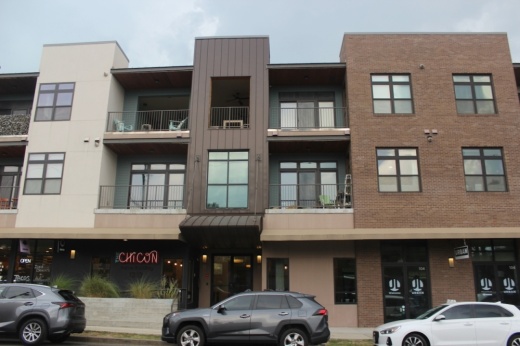A recent study commissioned by the city to track the pilot program's outcomes revealed that most of the payments were used for housing, a stated goal of officials who launched the plan in 2022.
“When you give people the latitude to take even a small amount, like $1,000 a month for a year, they will make good choices. And you can see that all over the data we’re collecting in Austin," said Mary Bogle, an Urban Institute principal research associate who tracked the one-year trial.
The two-minute impact
The pilot was organized by the city in partnership with the nonprofit UpTogether to test the impact of unconditional, set cash payments to those facing housing and food insecurity.
The Washington, D.C.-based Urban Institute was tasked with monitoring the initiative and collecting survey responses from dozens of participants. The institute's preliminary 12-month findings were released in January ahead of a final report expected this spring.
Initial results show program participants spent more than 50% of their checks on rent and mortgage payments each month.
Other key findings of the year-one report include:
- Participants reported feeling more housing secure at the end of the program than at the time of enrollment.
- 14% more participants caught up on their rents or mortgages, while 12% fewer participants reported being at risk of eviction or foreclosure.
- Participants were less likely to skip meals and more likely to be able to afford balanced meals.
“One of the effects of the guaranteed income for the participants we talked to was that they all spoke to having a lot more mental headspace, like bandwidth, for pursuing larger priorities in their life beyond just struggling to survive on a day-to-day basis," Bogle said.
Put in perspective
Meng Qi, UpTogether's Southwest partnership manager, said the results line up with the nonprofit's previous work and a growing body of evidence about guaranteed income initiatives nationwide.
"We were not surprised by the findings, which track with our 20-plus years of experience in cash transfers to individuals and families," Qi said in an email. "When you give people more choice and control over their lives through unrestricted cash investments, they find pathways to financial mobility."
Testimonials from program participants provided by the Urban Institute showed that income recipients were able to expand their social networks, focus on their children's education, learn new personal and career skills, and improve their job prospects.
Bogle said a key to the program is its no-strings-attached approach, allowing participants to use money in whatever way is best for their situation.
In addition to housing, she said recipients used their payments to support career advancement or catch up on car payments—as well as less traditional strategies. For example, Bogle pointed to a participant experiencing homelessness who used her extra money to improve her safety while she awaited a permanent housing placement by supporting others living in her encampment.
“Folks might say, ‘Should she have been buying food and things for other people?’ But she had a very practical reason for doing it. And when left up to her choice, who can argue with her maintaining her safety in an inherently unsafe situation?" Bogle said. "I think when you get into the qualitative data and the actual participant stories, one of the really fascinating things to me is that often people make better choices with this money than our siloed, means-tested benefits program would make for them."
The specifics
The city of Austin initially allocated $1.14 million to support 85 program participants. The St. David’s Foundation later provided funding for 50 additional families.
The city partnered with 10 community organizations to identify who to enroll. Criteria included city residency and an income cap, and participants were also required to be exiting homelessness, facing eviction or at least two months behind on rent.
The guaranteed income pilot followed Austin's previous exploration of rental payment assistance programs for low-income residents during the height of the COVID-19 pandemic.
What's next
Last summer, City Council voted to set aside $1.3 million for a new family stabilization grant program for low-income Austinites.
“Direct cash relief is one of the best ways to support struggling communities. Initiatives like these empower our neighbors with choice and dignity during tough times," said council member Vanessa Fuentes, who sponsored that funding request, in a statement.
A city spokesperson confirmed the new grant program isn't yet up and running. Interim Equity Officer Tamela Saldana said city staff are working on a new contract for the program, which could begin this spring.
The Urban Institute team provided several recommendations for future initiatives in their one-year reporting.
Bogle credited Austin's management of the program and said a $1,000-per-month payment appears to be a "decent dose" of guaranteed income. However, she said governments should consider extending program timelines and aspects of participant eligibility.
Participant Jessica Nairns, who was living in her car at the start of the program, echoed the sentiment, citing that 12 months was not enough time for her housing or employment situation to stabilize.
"I would use the checks to stay in a hotel while I looked for full-time jobs. ... Once the program ended, I still only had my part-time job, so when my car broke down in December, I couldn't afford to fix it. Now I'm back to living in shelters," Nairns said. "It helped my day-to-day mental health a lot, but I maybe wish I had more time to save up the money."
In other news
Harris County officials recently approved a guaranteed income pilot to provide $500 monthly cash payments to 1,928 county residents for 18 months.
The concept of unrestricted, taxpayer-funded payments has also been met with resistance in Texas. In 2023, some state lawmakers filed legislation to ban basic income programs in Texas—although those bills didn't advance.
More recently, state Sen. Paul Bettencourt, R-Houston, sent a letter to Attorney General Ken Paxton in January asking for an opinion on the legality of the programs.






